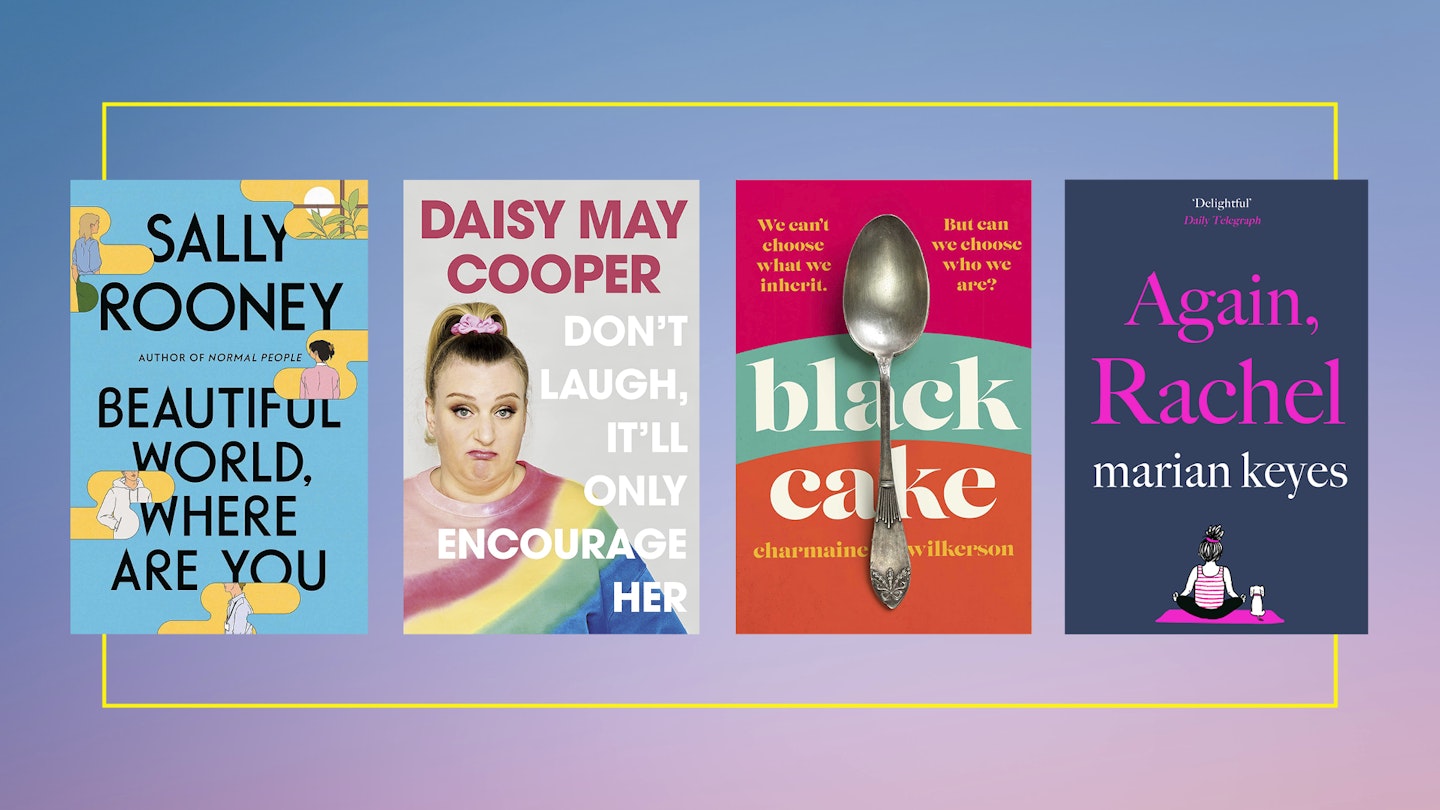From the blue and yellow cover art currently dominating your Instagram feed to the uncorrected proofs selling on eBay for $200, this week’s release of Sally Rooney’s Beautiful World, Where Are You comes with all the hype of a Telfar Shopping Bag drop. Her third novel tells the story of Alice, a hip young novelist, and her best friend Eileen, who works at a literary magazine, and their love interests. The Times calls it ‘beautiful and serious’.
Clearly, Sally Rooney is in a class of her own as a novelist, her profile at an all-time high after the spectacular success of the BBC adaptation of her last novel, Normal People. Even before that, though, her impassioned, millennial audience put her at the centre of a burgeoning publishing phenomenon: the rise of the It book, with a certain kind of novel enjoying turbo-charged word-of-mouth buzz online – and soaring sales as a consequence.
Omnipresent in your feed this summer are Meg Mason’s Sorrow And Bliss, Miranda Cowley Heller’s The Paper Palace and Taylor Jenkins Reid’s Malibu Rising. Meanwhile, 2019’s It books – Dolly Alderton’s Everything I Know About Love and Candice Carty-Williams’ Queenie – are proving their continued power, currently being adapted for BBC One and Channel 4 respectively.
Such books, says The Bookseller’s books editor Alice O’Keeffe, tend to be ‘beautifully written but with really wide appeal’, meaning they occupy a sweet spot between commercial and literary fiction. And for readers to want to wax lyrical about them online, they need to relate, something that has increasingly influenced the commissioning process. ‘Women have always been big readers of fiction, but publishers are catching up to that now and opening up to a wider range of voices,’ says Guardian joint head of books, Charlotte Northedge, whose debut thriller The House Guest is out now.
Endorsements are key. Cover blurbs are more visible than ever (Sorrow And Bliss had me at ‘Ann Patchett’; Raven Leilani’s Luster at ‘Zadie Smith’), while social media has boosted inter-author promotion. Actors and politicians wield power too: in the US,
Reese Witherspoon’s book club and Barack Obama’s reading list can swell sales. In the UK, says O’Keeffe, the holy trinity of blurbers are Elizabeth Day, Dolly Alderton and Pandora Sykes: ‘Those names carry a lot of influence.’
Covers are increasingly stunning. ‘Once, they just had to work as a thumbnail on Amazon, but now there is a lot of focus on the image,’ says O’Keeffe. She flags Wahala, by Nikki May, as a great read with exceptional artwork, to look out for in January.
By making them beautiful and targeting the cool literary crew, publishers hope such books will become social indicators; an Instagram-era equivalent to ‘people in the ’90s carrying around a copy of some Russian classic they hadn’t read,’ says O’Keeffe, ‘but this time they have actually read them!’
No marketing technique will truly make a book catch fire, however, says Northedge, unless it is ‘the kind you finish and immediately recommend to friends, with a “can’t put it down” element – a holy grail for authors’. Because, from former US Presidents to discerning mates, It books are the kind readers feel desperate to press into friends’ hands. Championing them on Instagram Stories is just the modern equivalent.
IT BOOKS TO ANTICIPATE
Don’t Laugh, It’ll Only Encourage Her by Daisy May Cooper, out in October
Find her hilarious chats with her publisher on her Stories.
Wahala by Nikki May, out in January
Billed as Sex And The City with a killer edge.
Black Cake by Charmaine Wilkerson, out in February
A multi-generational debut generating hype.
Again, Rachel by Marian Keyes, out in February
The sequel to her classic, Rachel’s Holiday.
The Candy House by Jennifer Egan, out in April
The follow-up to her Pulitzer-winning A Visit From The Goon Squad.
Meredith, Alone by Claire Alexander, out summer 2022
Meredith hasn’t left her house for 1,215 days...
